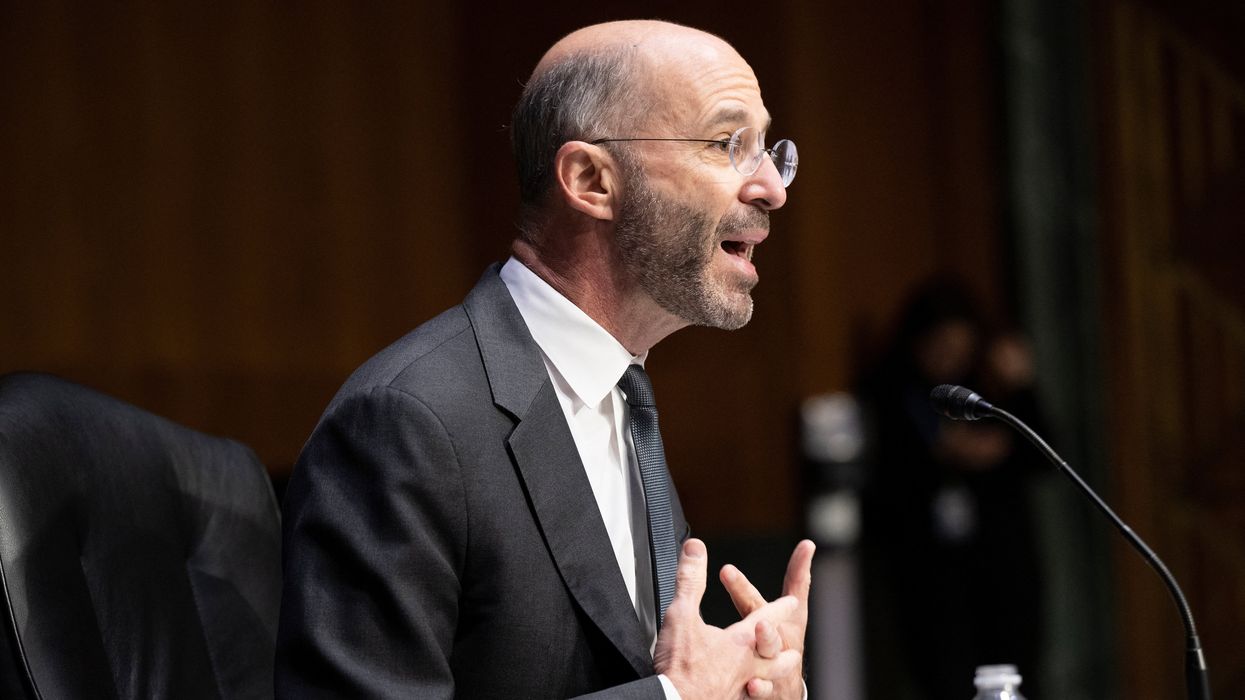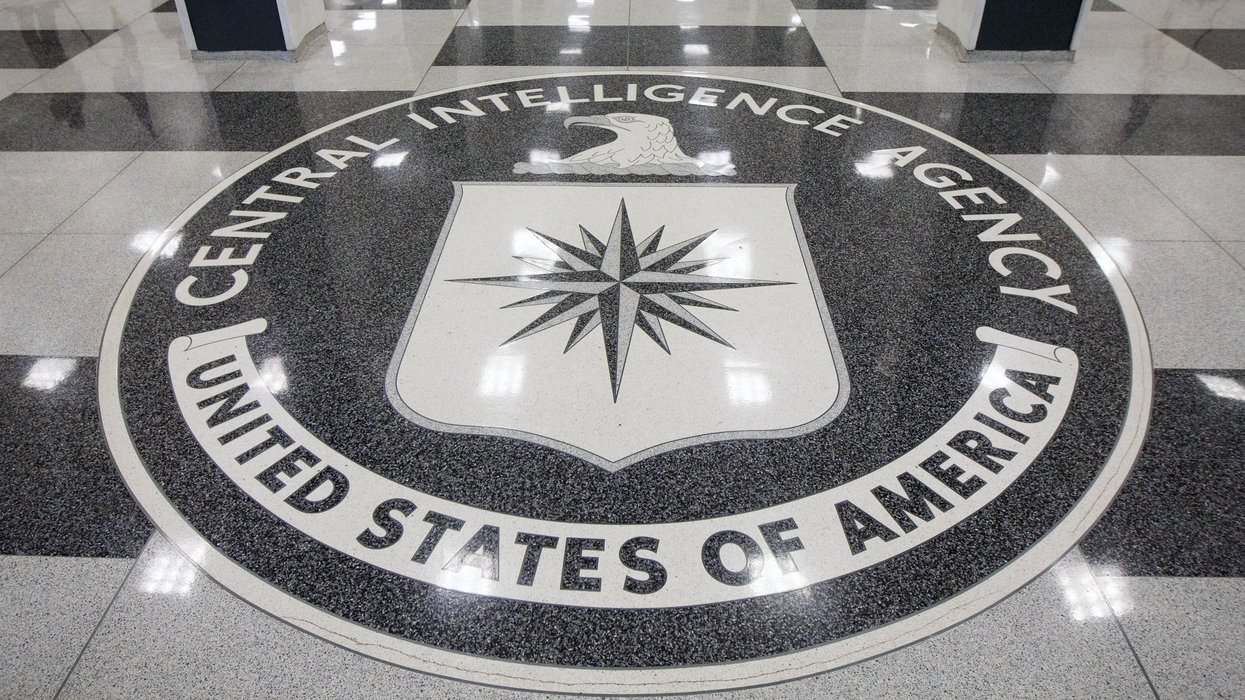In the wake of the Supreme Court ruling in favor of gay marriage, Glenn spent the majority of Friday's radio show speaking with experts about the impact of the decision on people who believe in traditional marriage. David Barton doesn't have a lot of confidence that religious liberty and freedom of conscience will be safe given the political atmosphere and the activist courts.He also thinks there is zero chance conservatives will be able to pass a constitutional amendment to preserve traditional marriage. So what happens next?
GLENN: David Barton is with us now. Hello, David.
DAVID: Hey, guys.
GLENN: We just talked to the Liberty Institute. And we felt pretty good about what they were saying about the -- the Supreme Court, all nine justices stood up for religious liberty. Do you have comfort on that?
DAVID: No. I don't.
GLENN: Okay.
DAVID: Anymore than I have comfort on the fact that the Hobby Lobby decision where the Court came out emphatically and said you have a right to conscience, that court after court after court said, well, that's for abortifacient. You don't have the right for conscience for marriage.
So I've watched as we've had very emphatic rulings from the Court, and lower courts just refuse to do anything with it. And below that, lower officials do the same thing.
I mean, we still have -- we have 8-0 ruling by the US Supreme Court you can have all sorts of religious activities in schools, and yet we have principals across the nation saying, wait a minute, kid. You can't say "God" at graduation, et cetera.
So I don't have much confidence in that. But there's really a fundamental question that I think has to be asked at some point. And it deals with the nature of the judiciary itself.
And that is: At what point are we going to go back to saying, you know, we have to allow elected officials to make policy, rather than the courts? Because for the last five sessions, we've watched the Court increasingly make grander and more bold statements on what they should do.
And reading Kennedy's decision this morning, I felt like I was listening to a televangelist at 2 o'clock in the morning somewhere. I mean, that kind of rhetorical language, that kind of apologetic language is pretty unbelievable coming out of a court.
And so at some point, we'll have to get back to fundamental decisions of, okay, the Constitution doesn't allow judges to do this. So what will we do as a result? And that's a whole different discussion. But I'm not that secure on religious liberties. And I think you'll see that through the NDOs and through the things that will happen at the city level, that there won't be much protection for religious liberty.
GLENN: Okay. So I'm back to completely depressed. David, what do we do now? What do you recommend that the average person does this weekend?
DAVID: Well, at some point, and it's what you've already been talking about. At some point, you have to have standalone courage and stand up and say, you know what, the rest of the world may be going off the cliff, but I'm not.
And let me tell you, this is a wrong decision. And this is why. And at this point, if we just get in the boat and decide to float with the current, we'll be done with this. This to me is very much like what happened with the fugitive slave law in the 1850s, where that you had one side that said, hey, the Court's ruled. You know, this is a done deal. Congress has spoken on this. And other people said, no, they may have spoken, but they said the wrong thing.
And it really started turning things back in a right direction. But you had the Dred Scott decision and everything else that goes with it. Yeah, the Court ruled, but they ruled in a bad direction for the country and a bad direction for the Constitution.
I really did appreciate what Roberts said. He said, if you want to celebrate gay marriage, do it. But don't celebrate the Constitution because the Constitution had nothing to do with this ruling today.
And at some point, I think we're -- where we were with Dred Scott where we said, you know, the Constitution had nothing to do with this ruling. This was judicial activism, and we'll have to get back at some point to living by a document that we swore to uphold. So I think that's what we do right now, as we start raising our voice and saying, you know, that may be the Court, but I'm not going over the cliff with everybody else. I won't get in this rowboat and go over the Niagara Falls. I'm not going to float that direction. I'm going to swim upstream. I think we'll find quickly that we're not as upstream as we think we are.
GLENN: Governor Walker just announced that he is adding to his platform now that one of his main things is that he will pass a marriage is between a man and a woman amendment in the Constitution. That's what he'll push for as president of the United States. Do you think that's wise? What do you think of that politically speaking?
DAVID: Politically, it's not going to happen. You need two-thirds of the Senate go with it. There's no way you'll get 25 percent of Democrats join 100 percent of Republicans. Politically, that's a dead issue. It will not go anywhere. A constitutional amendment. The only thing that will make a constitutional amendment go -- I have congressman in Congress years ago who told me something 25 years ago. They said, Congress only sees the light when it feels the heat. And unless Democrats still feel the heat from black pastors and Hispanics and others that are so much more pro marriage than even whites are, unless they feel that kind of heat, there's no chance of a constitutional amendment going, nor is there a chance that you would get three-fourths of the states to ratify it. I think we can pretty quickly name 13 states that would refuse to ratify, and that would keep it from becoming policy. So, you know, that's a great piece of rhetoric. But policy-wise, we're back to, how long do we want nine elected people to have the majority vote to tell 330 million people what their policies will be?
PAT: If you can't get it done and the case you laid out pretty convincingly, David, suggests he can't, I don't think it is a great piece of rhetoric. Because that will hurt him with the electorate.
STU: But maybe not in the primary.
DAVID: Yeah, I don't think it will hurt him as much as we think. Because what will happen -- I mean, we're seeing polling right now. You would never recognize right now that 81 percent of the nation says that the issue of gay marriage should not be allowed to infringe on the rights of conscience. Now, that's what 81 percent believe. But we have dozens, if not hundreds of accounts across the nation, whereby public policy we're doing that. And what happens is, people aren't being told about rights of conscience. They're being told about equality and everybody should have the right to love who they want to and marriage is something -- that's great.
GLENN: That's where France went wrong.
DAVID: That's right. And it depends on how you frame the rhetoric. And so I think that people have a sense of, yeah, I prefer traditional marriage, but I think everybody should have the right to do what they want to do. So in that sense, I don't think what Walker does is going to hurt him, particularly with a primary vote where he's struggling with a dozen other guys to come out with a position -- I don't think it will hurt him much. I think if someone turns his rhetoric into an anti-equality position, then it hurts him. But just to say it the way you said, I don't think it will hurt him politically.
GLENN: David, thank you very much. Could you just give me a little quick hit on how you think this is affected by 8/28 and what we're planning to doing there.
DAVID: Well, 8/28 essentially it's coming back to the individual. And where we are today is one of the frustrations that Americans have. We look at the Court and say, I wish they would have done it different. There's nothing I can do. Great. That's fine. But the American Revolution was not won because we watched George Washington. It was won because people in their local communities said, you know, I'll defend my town. I'll defend -- I'll stand up against the British when they come here. I'll be Naphtali Daggett out on the hillside, one man taking on 200 -- excuse me -- one man taking on 2500 British in the battle of New Haven. I'll be that guy on the hillside that will take on 2500.
And that's what 8/28 will be. It's time for us to have the force of convictions to stand up in our local areas, talk in our own families, talk in our own churches, talk in our own communities, talk to our own school boards and start letting our voice be heard at a level where it will be heard. And I think that's one of the great things that has to happen. And that's always been the movement in America that's turned America in the right direction. Is when the grassroots starts bubbling up from the bottom, not coming down from the top at the Supreme Court.
GLENN: David, thank you very much. Appreciate it.
DAVID: Bless you guys.
GLENN: Bless you too. David Barton. President of Wall Builders. You know, we should call him Dr. Barton. You know, he has his PhD I think in history and education. Too many people just dismiss him as -- as -- you know, oh, just some guy who thinks he knows history. No, he has his doctorate in education and he's a brilliant, brilliant man.










